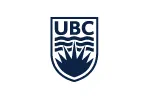We're moving! This site will be relocating to goingto.university in 2026. Please update your bookmarks to the new address.


Canada
The University of British Columbia (UBC)| The award | How you will study | Study duration | Course start | Domestic course fees | International course fees |
|---|---|---|---|---|---|
| MSc | Full-time, Part-time | - | September | 4802 | CAD 8436 per year |
Program Overview
Food scientists integrate and apply fundamental knowledge from multiple disciplines to ensure a safe, nutritious, sustainable and high quality food supply, and to establish scientifically sound principles that guide policy and regulations pertaining to food on a global scale.
Since its inception in 1969, the Food Science Program at UBC has been a leader in providing opportunities for advanced study and research in Food Chemistry and Biochemistry, Process Science, Microbiology, Safety and Toxicology, Biotechnology, Quality Evaluation and Wine Biotechnology.
What sets the UBC program apart?
The innovative research conducted by UBC Food Science faculty members and students has led to national and international recognition in the form of awards and collaborations with research centres and universities both in Canada and around the world.
The program is uniquely situated in a Faculty that focuses on education and research to address issues around food, nutrition & health, and the responsible use of finite land and water resources to ensure a sustainable and safe food supply. In addition to laboratories equipped for chemical, analytical, molecular biology and microbiological (including Biosafety level 2) based research on food, the program houses pilot plant and sensory evaluation facilities for research requiring food-grade specifications.
Students can also access research facilities at UBC, such as the Laboratory of Molecular Biophysics, BioImaging Facility and Michael Smith Laboratories, as well as through collaborations with other institutions including Agriculture & Agri-Food Canada and the Department of Fisheries & Oceans.
Career Options
Graduates with an MSc degree in Food Science from our program have rewarding careers as quality assurance technicians or managers in the food industry, as instructors or researchers at universities, colleges and government research centres, and as technicians in analytical laboratories.
Some graduates have gone on to obtain a Ph.D. degree in food science, while others have pursued further education in fields such as business administration, education, human kinetics, human nutrition and law.
Contact The University of British Columbia (UBC) to find course entry requirements.
Below are some suggested courses at other providers that you may also be interested in:
Undergraduate Certificate in Mechanical Engineering UG:Certificate
Engineering Institute of Technology
Find out moreCoastal Communities and Regional Development Master Degree
University Centre of the Westfjords
Find out moreStudio Recording – Short Course Summer School
Catalyst - Institute for Creative Arts and Technology
Find out moreIf you do not meet the entry requirements for this course then consider one of these postgraduate preparation courses from another institution:
Graduate Diploma of Engineering (Industrial Automation)
Engineering Institute of Technology
Find out moreThere are 317 other courses listed from The University of British Columbia (UBC). A selection of these are displayed below:
Bachelor of Science in Food, Nutrition and Health BSc
The University of British Columbia (UBC)
Find out moreDoctor of Education in Educational Leadership and Policy EdD
The University of British Columbia (UBC)
Find out moreDoctor of Medicine and Doctor of Philosophy MDPHD
The University of British Columbia (UBC)
Find out moreDoctor of Musical Arts in Orchestral Instrument DMA
The University of British Columbia (UBC)
Find out moreJoin the StudyLink email list and never miss a chance to turn your study abroad dreams into reality!
